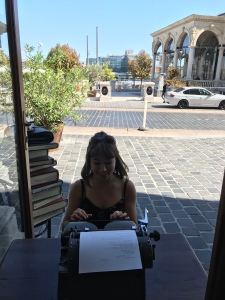This December, at the Oslo City Hall, Norway, a representative of Bob Dylan will collect his Nobel Prize for Literature, around two months after he was announced as the winner of the prestigious award.
The public surprise and controversy over the songwriter’s receipt of the accolade inevitably raises the question: what is literature?
We use the term in a variety of different contexts, to mean subtly different things. Sometimes people will refer to the ‘literature’ surrounding a topic or task, almost meaning paperwork, or at least the written word related to a certain matter. Or ‘abolitionist literature’, for example, where the term refers to pamphlets or advertising which give advice or offer influence. In secondary schools it refers to a subject which encompasses drama, prose and poetry, but its use is obsolete in primary schools. Collins Dictionary even yields the wide-ranging ‘the art or profession of a writer’.
For most people, the primary meaning of ‘literature’, however, is in reference to written works, especially those of ‘superior or lasting artistic merit’ (according to Google definitions). Again, Collins suggests ‘poetry, novels, essays etc.’. But, we have been forced to consider, what exactly does ‘etc.’ encompass?
And is it this technicality which we ought to be focusing on? Is the defining element of this abstract noun that it is written? Or is it more important that it has this special ‘artistic merit’? Does the list provided by Collins go on, and can it ever be exhaustive?
We might consider the key role of literature as relating a story. In this case, Dylan has to be placed on a level with Dickens and J K Rowling. His famous anthem of 1960s political change, ‘The Times They Are a-Changing’, begins with an undoubtedly ‘story-telling’ vibe. ‘Come gather round people / Wherever you roam’ is reminiscent of the old question: are we all sitting comfortably? In the 1975 protest song ‘Hurricane’ we are told ‘here comes the story of Hurricane’ and throughout its 8 minutes Dylan is definitely narrating a story with the ‘excellence of style and expression’ which Collins Dictionary cites as an important feature of literature. ‘Enter Patty Valentine’ actually sounds like Shakespeare.
If we took literature’s key defining aspect to be the written word, the certainty of Bob Dylan’s creativity is a little trickier, but nonetheless sound. Though commended for the composition and execution of the music which accompanies his verse, Dylan himself told the San Francisco Examiner in 1965 that ‘the words are just as important as the music. There would be no music without the words.’ The image, for which Dylan is famous, of the songwriter tapping away at a typewriter, composing whole songs in one sitting certainly tells me that he was a writer, first and foremost. And, as Collins has claimed, one need only to be a writer in order to produce literature. ‘I do the words first,’ Dylan stated – he argues his own case eloquently.

Spot on Jess. Great that you recognise and publicise Dylan’s lyrics as on a par with traditional/classical novelists. Excellent article.
LikeLike